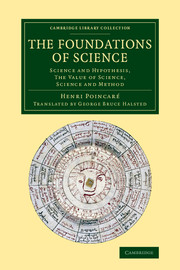1 results in Cambridge Library Collection - History of Science

The Foundations of Science
- Science and Hypothesis, The Value of Science, Science and Method
-
- Published online:
- 05 June 2015
- Print publication:
- 11 December 2014

